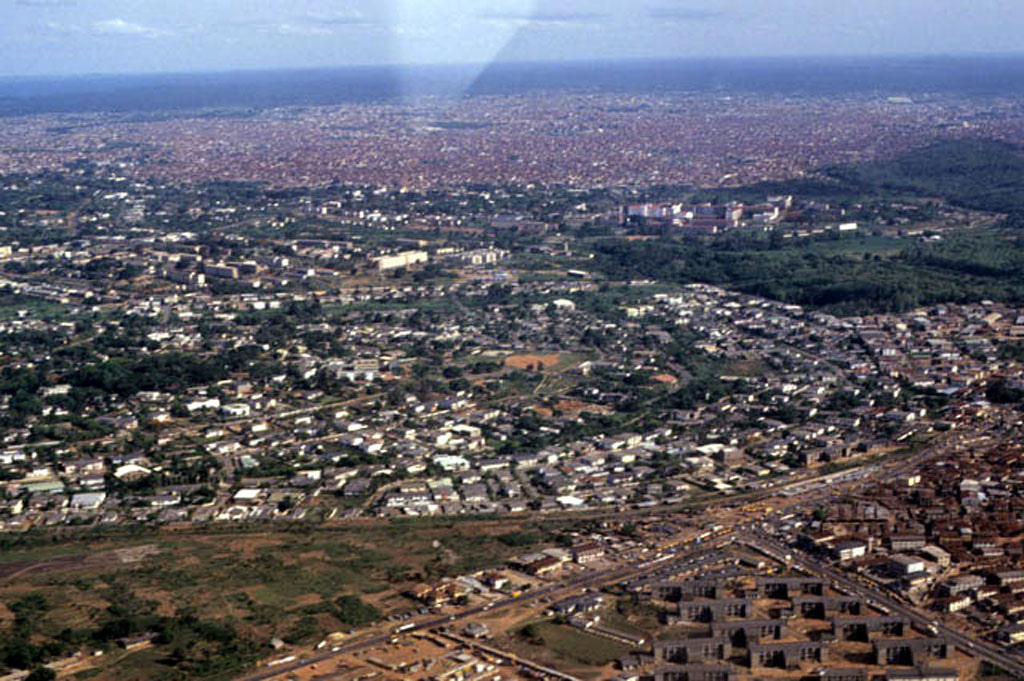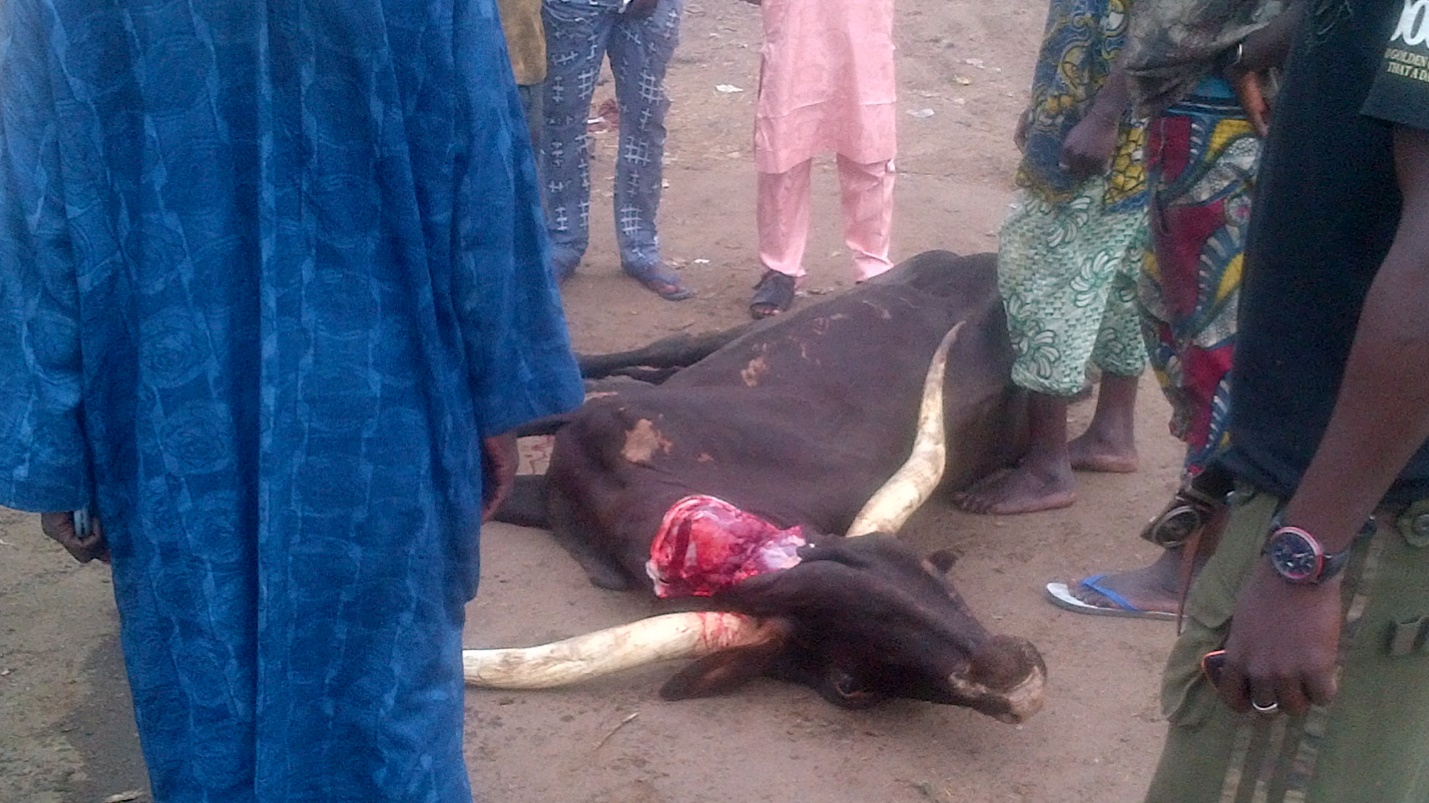BY KIKIOPE OLUWARORE
Ibadan, the capital of Oyo state, is a large metropolitan community with a rich historical heritage and considerable socioeconomic appreciation. It is the third largest city in Nigeria with an estimated area of 3000 kilometers and a growing population of about 3 million people. The city has a predominant Yoruba population, with a generous mix of migrated residents from other tribes and parts of the country. In an almost equal proportion, Muslims and Christians co-exist peacefully.
In the heart of Ibadan lies Bodija, a highly commercial and high-brow residential district with an adjoining food and resource market. The Bodija market, which is widely regarded as one of the biggest markets in Oyo, also houses a notable slum community and the controversial Bodija Abattoir (also widely known as one of the most active and thriving abattoirs in the country).
Much like in most parts of Nigeria, meat remains a delicacy irrespective of socioeconomic status, religion, and tribe. And especially for Ibadan indigenes and residents, the love for meat remains constant as it forms a major part of their daily diet. Correspondingly, this city is especially acclaimed for its ‘bukas’ and ‘amala joints’ – which are local restaurants that serve indigenous foods like amala, eba, and iyan accompanied with the local soups and large portions of beef, goat meat and offal. These bukas are particularly interesting because even though a majority of them exist in run-down shacks with highly questionable food hygiene and little or no health inspection, they are still largely patronised by all and sundry – irrespective of socioeconomic status.
Ogunfe, eran, inu-eran, fuku, edo, okan, isi-ewu, roundabout and others – all products of cattle and goat meat are largely consumed by residents of Ibadan and are delicacies that visitors to Ibadan often look forward to consuming. Furthermore, in most Ibadan households, meat is a constant presence in meals. In fact, it is said to be either a sign of disrespect or of abject poverty for an Ibadan indigene or resident not to have meat on his/her plate when served – a great demonstration of the appreciation for meat there.
Advertisement
For the millions of meat consumers in Ibadan and its vicinity, hundreds of thousands of them get their meat source from the controversial Bodija abattoir community. The abattoir/market/slum community is in Bodija, a two-minute drive away from the University of Ibadan.
It is an astonishing paradox to discover that Bodija abattoir is most likely the most dilapidated, unsanitary, and notorious abattoir in Nigeria. Upon entering the abattoir, you would be hit with the glaring evidence of a failed and a broken-down system. The abattoir, which was established since 1986, is still in use till today without any renovation. Due to constant over-use by an overcrowded population of at least 500 workers daily, the infrastructure and housing expectedly remain in a run-down, dilapidated state.
BLOOD, FAECES, FILTH
Any visitor to the abattoir would be quick to notice the terrible state of environmental squalor and chaos in every direction. Now, as expected, the business of slaughtering animals and processing meat in the abattoir always generates a huge amount of biological waste. This biological waste includes large amounts of blood, animal faeces, ingesta (from the animal’s intestines), body fluids and inedible animal by-products. For the Bodija abattoir, instead of a proper and sanitary waste management system, this waste is scattered in huge piles and heavy splatters around and in the abattoir buildings; even right where the animals are being butchered and where the meat is being “cleaned”.
Advertisement
After the usual routine of slaughtering the animal and “cleaning” the meat, any attempt at washing off the waste and dirt usually means just directing the pile of waste into the run-off gutters in the abattoir building. Unfortunately, the gutters are constantly blocked due to poor maintenance, and with a large number of animals slaughtered daily, this pile of fecal and biological waste continues to fill up and block the gutters. In this case, it is not surprising and equally disgusting to see huge flies feasting and worms breeding in it. Even more shocking is seeing butchers and meat sellers “washing” their meat and offal (which will be for sale) in the waterlogged areas of the gutters.
Another confounding issue at the Bodija Abattoir is the complete lack of meat inspection officers. Now, the core duties of meat inspection officers include the following;
- To inspect every animal brought into the abattoir for slaughter,
- To verify the animals as suitable for slaughter and processing into meat and,
- To ensure that every meat and offal retrieved from the slaughtered animals is duly inspected and verified as suitable for sale for public consumption.
This means that in a functional working abattoir environment, any animal or meat that the meat inspection officer does not approve for slaughter or for sale is condemned and should be appropriately disposed of and destroyed. However, at the Bodija Abattoir, there has been no functional meat inspection officer for more than two years. First, there are just about 10 employed meat inspection officers, a very few number assigned to cater to a population of over 500 butchers. Secondly, there has always been a constant face-off between the meat inspection officers and the butchers because condemnation of a butcher’s meat means a loss of money (on the butcher’s part) without any government compensation. These confrontations sometimes get violent with the inspector’s life in danger. Therefore, many inspectors might rather choose to be diplomatic and less forceful to protect both their lives and their jobs.
Advertisement
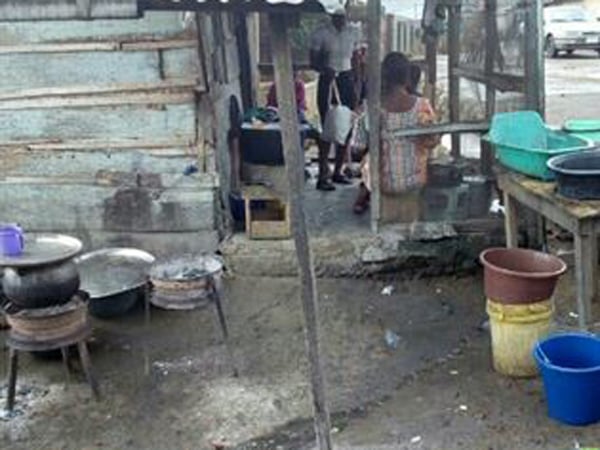
Furthermore, there is a big issue stemming from a purported relocation of the Bodija abattoir to another assigned location. According to informed sources, a new modernised abattoir was built in 2014 with a location on the outskirts of Ibadan. It was built through a public-private partnership and was expected to host the abattoir workers and meat inspection officers after being compulsorily relocated.
However, till date, the Bodija abattoir workers have blatantly refused to relocate despite face-offs and attempts at forceful evacuation by the government with the police. Various reports from the abattoir workers indicate that they do not trust government motives as they believe the government intends to rip them off financially with exorbitant tariffs at the new location. More so, they also feel left out and believed they should have been consulted in the plans for establishment of the new abattoir since they are also stakeholders.

No meat inspection in more than 2 years!
Other contrary opinions state that the whole situation has been highly politicized to the detriment of the abattoir workers and the population of meat consumers. The meat inspection officers have since relocated their offices to the new abattoir but with no abattoir activity or operation to oversee. Therefore this apparent gridlock between the abattoir workers and the government has resulted in no meat inspection being carried out for more than 2 years now.
Advertisement
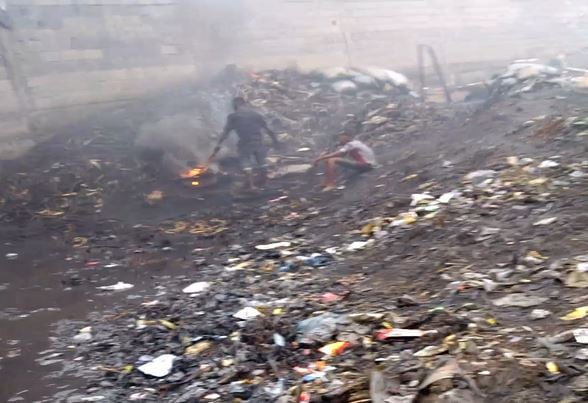
‘KILLING THE DEAD’ AND OTHER UNSCRUPULOUS BEHAVIOURS
Furthermore, there is the great issue of unscrupulous meat processing activities and unhealthy behavior that is paramount among the abattoir workers. These activities include the following; slaughtering of animals that are dead or near death or with apparent diseases or sickness for meat, to sell for public consumption.
Advertisement
This animal was rushed into the abattoir in a near-death, sick and highly emaciated state, and quickly slaughtered. The meat will be sold for public consumption. In an ideal situation, it is an abomination to slaughter such an animal but there are no meat inspection officers to stop this. Even if a meat inspection officer was available, the butchers would probably start a fight to resist the carcass being condemned.
Highly diseased offal (kidneys) from diseased and sick animals. As expected of the butchers, this offal would still be sold to the public for consumption as there is no meat inspection officer to stop them.
Advertisement
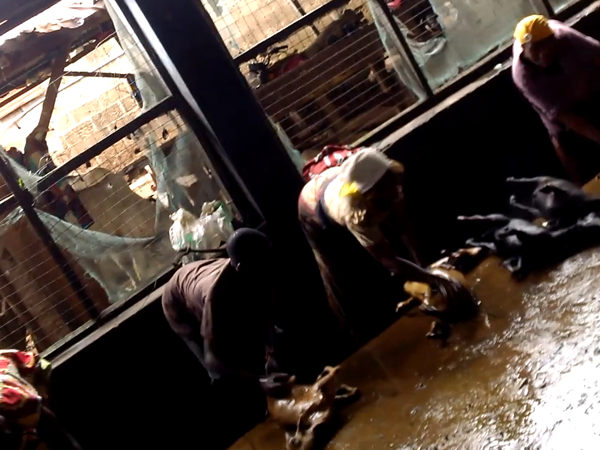
This is the goat section. These women can be seen washing their slaughtered goat and meat (for ogunfe) with murky filthy waters from the run-off gutters. This meat will be sold for public consumption. Also notice that they are standing and “washing from inside the gutters without boots, gloves or any form of protective clothing.
- Human urination and defecation around and in the abattoir run-off gutters;
- Hawking edible foodstuff and eating within the slaughter area.
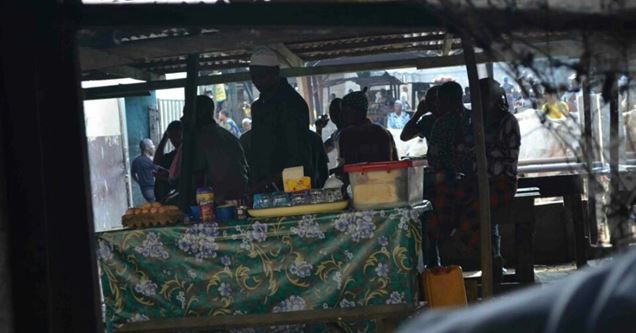
- Indiscriminate dumping of refuse, fecal and biological waste as discussed earlier
Selling of dead fetus from slaughtered cows, ewes and sows.
Advertisement
These are dead fetuses gotten from an ewe (female goat) and cow (female cattle) respectively. These are commonly sold for suya – another popular Nigerian delicacy). In an ideal abattoir environment, it is illegal and unethical to slaughter pregnant cows, ewes and sow for meat, not to mention the sale of dead fetus.
In addition, the abattoir is located within a large slum community of about 5,000 people which lacks basic infrastructure and hosts an additional number of unscrupulous activities and developmental issues such as illiteracy, prostitution, drug abuse, fights and disputes, poor health, mental illness, extreme poverty, with the associated culture of begging. All these perpetuate a failed system with very poor meat hygiene and a calamitous public health situation.
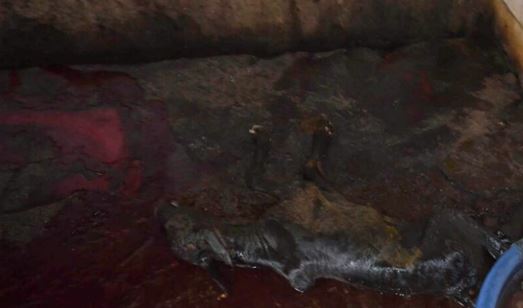
‘CATTLE SNIFFING INDIAN HEMP’
Another noteworthy issue is the total lack of orderliness and decorum that makes the working abattoir environment very prone to injuries and accidents. The abattoir is usually bustling with an overcrowded population of workers going about their daily activities and swinging machetes, knives, and other sharp and dangerous instruments without any protective clothing. With the lack of organized and defined space to accommodate the high number of abattoir workers and their animals, any and every space can be utilized. The word ‘Ago’ which is a warning to “move out of the way” is frequently heard. Unheeding to that call may lead to being shoved to the floor of filth, or a remarkable injury or a quick hit by some angry bull/cow being taken to slaughter. There are also reports that for an added macho show, some butchers sniff their cattle with Indian hemp (igbo) which charges the bulls/cows as they are driven into the abattoir area for slaughter. As expected, anyone who stands in the way of such a bull/cow is in a precarious position indeed. So, in this environment of chaos and danger where no one wears protective clothing, it is not surprising to find frequent incidents of remarkable injuries, slips, falls and with the scars to show for it. And though experience has taught most abattoir workers how to meander through swinging machetes, stabbing knives and angry bulls and cows taken to slaughter, working in the Bodija abattoir remains a dangerous and injury-prone working environment.
WATER SCARCITY
Another major issue at the abattoir is inadequate and inconsistent potable water supply. Naturally, an abattoir greatly needs a generous and constant supply of potable water because of the constant generation of high volumes of biological waste. But in this case, the Bodija abattoir is far from the ideal. There is no direct supply of water into the various buildings, and until recently, the abattoir workers fetched water from dug wells which were in highly unsanitary conditions – with shocking reports that for some reason, people defecate in the wells. So presently, the abattoir gets its water supply from an installed borehole that was eventually donated by the state government after much dialogue. However, as there is no electricity in the abattoir, water can only be pumped using an electric generator. It is important to note that even with the advent of the borehole, the unsanitary environmental issues remain the same. Therefore, in frequent cases of a failing generator or technical issues with the pumping machine when water supply is very limited, the situation of poor sanitation, poor environmental hygiene and indiscriminate waste disposal gets even worse.
These dreadful and shocking conditions in the Bodija Abattoir where meat is produced elicits a variety of questions that beg for answers. And this is even more of a precarious situation since most of us Nigerians consume meat as a major source of protein. The Bodija Abattoir in Ibadan is just one of the many examples of the highly filthy and unhealthy states of the abattoirs and slaughterhouses around the country and in our individual environment.
